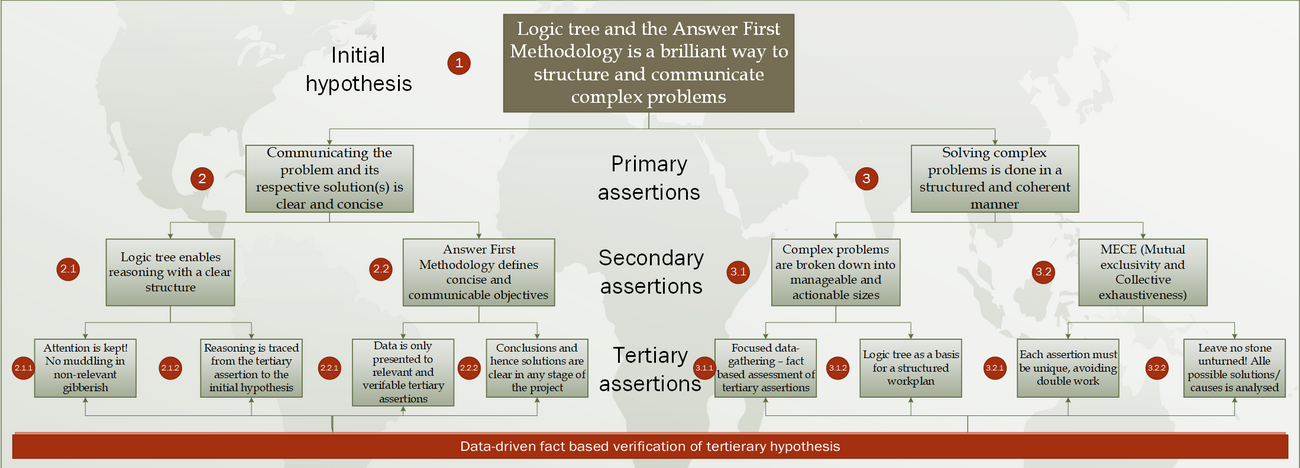Logic tree and the Answer First Methodology
(→Big Idea) |
(→Big Idea) |
||
| Line 10: | Line 10: | ||
[[Image:Logic_tree.png|1300px|center|alt=Alt text |Title text]] | [[Image:Logic_tree.png|1300px|center|alt=Alt text |Title text]] | ||
| − | 1: | + | {{font color|red|This text is different}}1: |
= Application = | = Application = | ||
Revision as of 15:28, 17 February 2021
Contents |
Abstract
Problem solving in a company is difficult: Not only do you first have to identify a problem, but the company may also be so deeply entrenched in the way that they are doing things that they cannot possibly consider doing it differently. Developed by highly respected consultancy firms, The answer first methodology is a proven way of structuring a problem and the subsequent project activities in a way that is communicable, coherent, and thorough. By defining a problem as a primary assertion and working out from that, it is broken down into smaller, test-able fragments. What follows is a testing of the sub-assertions and whether proposed solutions will have an effect on the sub-assertion and through that the primary assertion. This breakdown enables a methodical, solution oriented and coherent project work where the main problem is always in focus. Framing the project around a primary assertion also creates a narrative that presentable and easy to follow for stakeholders. This article will briefly explain the birth of this methodology. Subsequently it will explain how it fits into the contemporary bigger picture of business management. What follows will be a crash-course in working with projects using the answer first methodology. This article will also highlight the pitfalls one can encounter when using this methodology as well as provide a general example throughout the presentation of the tool.
Introduction
Big Idea
Application
Text
Limitations
Text
